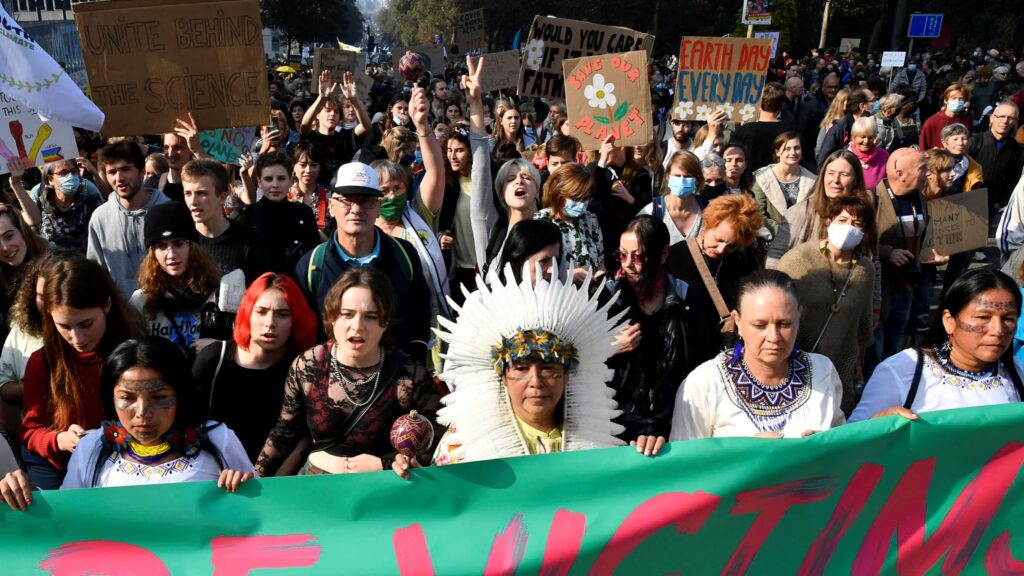Ngozi Okonjo-Iweala: Adopting a global carbon price is essential


The writer is director-general of the World Trade Organization
Last month, the scientific community confirmed what most of us already know. Climate change is here. Left unabated, the frequency and intensity of its impacts will only get worse. We are already seeing loss of lives and the effect on macroeconomic stability. Taking bold action through the introduction of a global carbon price is essential.
Momentum on climate change is picking up, with governments and companies pledging to get to net zero carbon emissions by 2050 or earlier. Many have already adopted a range of initiatives. Members of the World Trade Organization have, since 2009, formally notified more than 4,500 climate-related measures, from direct taxes to regulation, and discussed their trade implications.
However, we are still well short of what is needed to limit global warming to 1.5 or even 2 degrees Celsius. COP26, next month’s UN climate conference, will test the political will to close the gap.
But as governments move to raise the cost of polluting across the economy, including in energy-intensive, heavily-traded sectors such as aluminium, cement, electricity and steel, we hear increasing concerns about “carbon leakage”. This is the notion that raising the price of carbon in one market risks shifting investment and production to places where carbon prices are lower or non-existent. The fear is that carbon-constrained countries would suffer job and industry losses, with global emissions unchanged because polluting production is simply occurring elsewhere.
We still await definitive proof of carbon leakage, but analysis of low carbon prices shows that if large economies diverge significantly in climate ambitions, leakage could occur. This has led to calls for “‘border carbon adjustment measures” — tariffs or equivalent measures intended to ensure that foreign competitors are subject to the same carbon costs as domestic producers.
Yet developing countries, in particular, fear that border carbon adjustment could become a pretext for protectionism aimed at their exports, when they are not the core problem. Africa, for instance, contributes roughly 3 per cent of greenhouse gas emissions. From that perspective, poor regions of the world see this measure as unfair.
This is no argument against carbon pricing. In every sphere of our economy, production and consumption are guided by price signals. Unfortunately, carbon has too often been an exception, though this is starting to change. Indeed, more than 60 different carbon pricing schemes already exist globally, though they cover only 22 per cent of total emissions.
The challenge comes from the inconsistency of carbon pricing systems. Prices vary from less than $1 per tonne of CO2 in Ukraine to more than $130 per tonne in Sweden. Each subnational, national or regional system works differently and has different sectoral coverage. Prices are often too low, considering the estimate by the Stern-Stiglitz Commission on Carbon Pricing that somewhere between $50 and $100 per tonne of CO2 is required to meet Paris Agreement temperature targets.
There are different ways to price carbon. Competing ideas and approaches can spur learning and innovation. But fragmentation risks generating trade frictions and unpredictability for businesses seeking to decarbonise. Worse, it could weaken the effectiveness of global efforts to mitigate climate change.
Investment at the scale and speed needed to transform our economies over the next two or three decades would be best served by open international markets for goods and services, intermediate inputs and raw materials. A big worldwide push to invest in decarbonising electricity, transport, industrial production and homes could give rise to what some have dubbed “greenflation”. Trade frictions would exacerbate these pressures and reduce the cost effectiveness of green investment.
The most straightforward solution would be a global carbon price aligned with the Paris Agreement. This would help achieve our collective climate goals, and bring stability and fairness for cross-border business. Unfortunately, we are not yet there. Leaders gathering in Glasgow at COP26 should make solving this problem a priority.
But absent such an agreement, the WTO, IMF, World Bank and OECD share a duty to work together to find solutions. We need to offer governments our insights on a common methodological approach to carbon pricing.
We also have a responsibility to address the needs of least developed and developing countries, to enable a just transition towards environmentally sustainable economies and societies. Joining forces to propose a common approach on global carbon pricing is the way forward. We owe it to the planet and its people. We have no time to waste.
Ngozi Okonjo-Iweala will be one of the speakers at the forthcoming FT Africa Summit